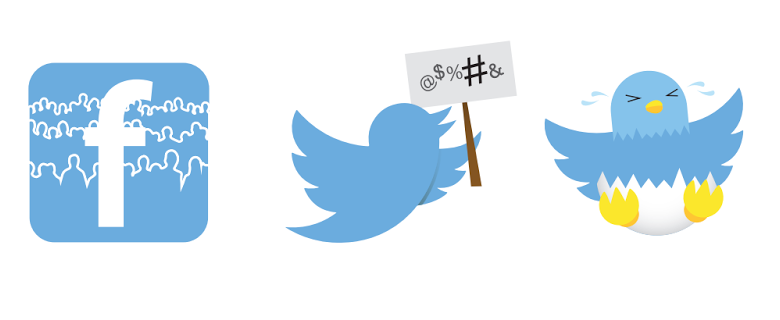Thousands of people around the world — including celebrities, prominent politicians and world-renowned scientists — expressed their outrage after Texas high school freshman Ahmed Mohamed was arrested for bringing a clock that officials thought was a hoax bomb to school. #IStandWithAhmed garnered 370,000 tweets within five-and-a-half hours on Wednesday morning.
The display added to a growing list of protests bolstered by the use of hashtags, trending topics and social media.
Dale Rice, director of journalism studies in the A&M College of Liberal Arts, said social media has profoundly changed the way the media covers movements and the way the public processes information. Rice said online avenues have brought new voices into the fold on the discussion of issues.
“It’s really opening them up to participation by way more people than our traditional forms of communication might have done previously, and its opening them up to participation by people in very disparate locations,” Rice said.
Kendal Gallimore, a management junior and the president of the Texas A&M chapter of the NAACP, said social media played a huge role in the rise of the prominent social movement Black Lives Matter and has continued to be invaluable in advancing the dialogue on race issues.
“I definitely think that social media has been a huge help in this regard because people who would otherwise not even know about all of these different things that have been going on in the world, now know of it at a click of a button by just logging on to Twitter, Instagram or Facebook, and its there for anyone to see if they should so choose to,” Gallimore said.
Gallimore said while raising awareness is important, a balance has to be struck between involvement in the online realm and action in the real world.
“I think the only issue with it is whenever people just use Twitter, I guess at face value, and they just see what’s going on — they see the hashtags, all the people that have been killed — and it doesn’t turn into action,” Gallimore said.
Rice said the increased participation, or “democratization,” of social movements, enhances participation in the political system. This, in turn, helps to make a better and more informed citizenry.
“I happen to agree with the people who see this as having a big effect on participation in a democracy,” Rice said. “It encourages more people to, in one way or another, be involved with what’s going on in their community, their state and their nation. I think it enhances participation, active participation, in citizenship.”
Rice said although the value of increased participation in the political process can’t be overstated, social media is not without pitfalls, chief among them being the reinforcement of one’s own biases.
“Therein, I think, is the biggest danger of them all,” Rice said. “You start getting your news only from sources with which you agree, so you simply spend all of your time re-enforcing what you already think or believe. Well I think I would take it even further, people who are sharing articles aren’t necessarily even sharing things based in fact.”
Gallimore said when it comes to social media, discretion is key.
“Social media has really turned into this amazing tool that people can use,” Gallimore said. “Granted you have to take what you see on social media with a grain of salt because not everybody is going to be giving out reliable and credible information on all social media — but it definitely is a platform that, if used effectively, can definitely cause a lot of information to be disseminated to a large amount of people.”
Rice said ultimately the effectiveness of social movements and social media campaigns will be measured not by the campaigners themselves, but by the political system they are appealing to.
“So an aspect of social media that is changing everything is the ability to shoot video with your cellphone and post it,” Rice said. “And so, you know, movements arise out of those kinds of things, and people become very principled and of course polarization occurs as well. But I would never be in a position of trying to say, ‘Well, as part of a social movement you have to compromise.’ I think it’s the job of politicians to find middle ground, and it’s the work of movements to really stand on their principles to push for change or to push for progress.”
Gallimore said a combination of different forms of activism will create the end results the initial online campaigns seek.
“If we can combine that sort of activism and action online with action in real life with speeches, marches, all this other stuff, that is a truly extraordinary thing and we can start to see extraordinary change if we can all work together to accomplish that one goal,” Gallimore said.
Social media redefines protests, movements
September 20, 2015
0
Donate to The Battalion
$1865
$5000
Contributed
Our Goal
Your donation will support the student journalists of Texas A&M University - College Station. Your contribution will allow us to purchase equipment and cover our annual website hosting costs, in addition to paying freelance staffers for their work, travel costs for coverage and more!
More to Discover










